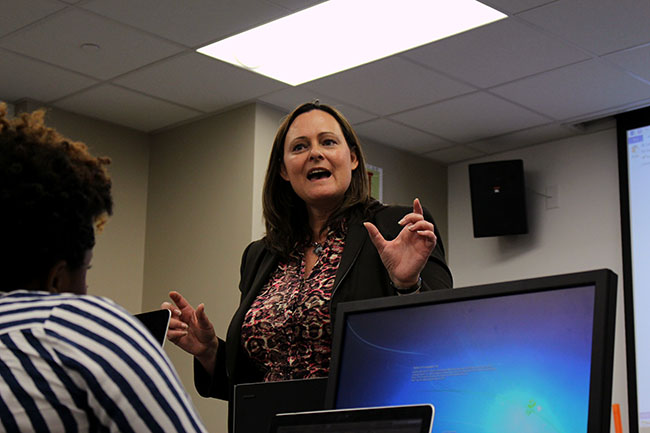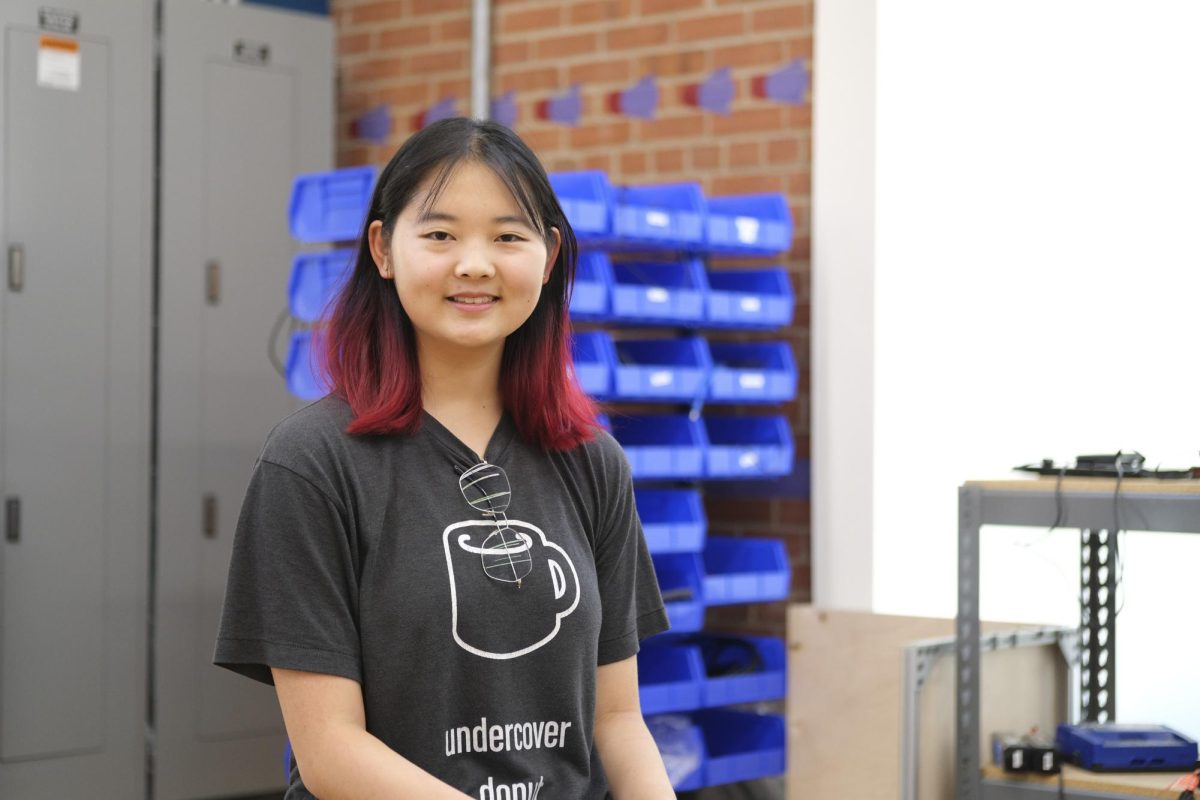Students learned how to condense hundreds of pages of research into two minute videos in a presentation led Thursday afternoon by Keri Stephens, associate professor of communication studies.
The presentation, titled “Being Brief, Clear, and Still Feeling Like a Scientist when You’re Finished” focused on ways to present complicated topics clearly and effectively.
Stephens said although she specialized in science during her undergraduate career, she has always been interested in public speaking.
“I was the biochemistry major who camped out in the communication classes,” Stephens said.
The workshop is part of the first Texas Student Research Showdown, a video and presentation competition for undergraduates at UT. To participate, students submit a two-minute video about their research, which their peers will vote on. Finalists will give six-minute presentations to a live audience and panel of judges.
Robert Reichle, senior program coordinator for the office of undergraduate research, said he planned the event to help students to convincingly explain their complex research to a general audience.
“Students have to present their research to a general audience, as broadly as possible,” senior program coordinator Robert Reichle said.
Stephens said jargon and technical terms during research presentations often confuse an audience.
“People are embarrassed to ask questions because they don’t want to seem stupid,” Stephens said, “Or they’ll be annoyed that you’re being so arrogant.”
Public speakers in the past over-rehearsed their presentations, but now audiences expect transparency from speakers, Stephens said.
“We don’t expect perfection anymore," Stephens said. "You can have a few ‘ums’ and you can use your quirky words.”
Stephens said she used YouTube and worksheets to get the audience to think critically about their own research. Keeping your audience engaged is one of the hardest parts of giving a research talk, especially online, Stephens said.
“Thirty seconds and they will click right off,” Stephens said. “That’s all you have to capture their attention.”
Sahil Bhandari, chemical engineering PhD student, said the examples Stephens showed helped him understand how to effectively convey information in a short presentation.
“I’ve attended a lot of these talks, but the way she presented was a standout,” Bhandari said. “My main take-away was that you cannot tell everything.”
Stephen said its normal for speakers to be nervous, and but nerves can give the speaker an advantage on stage.
“The instant I feel nervous, I think ‘Good, I’m normal,’” Stephen said. “Then I try to harness it into energy.”





















